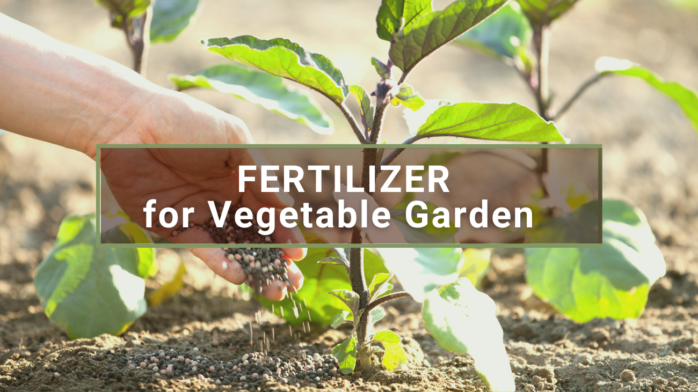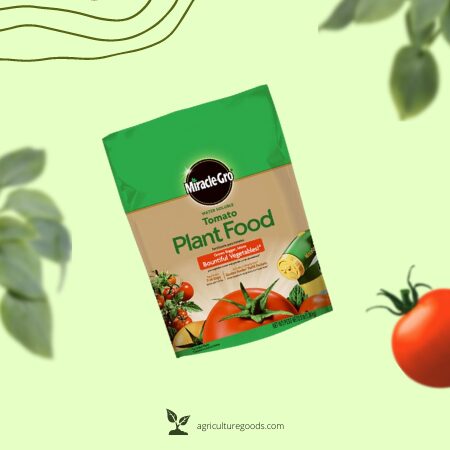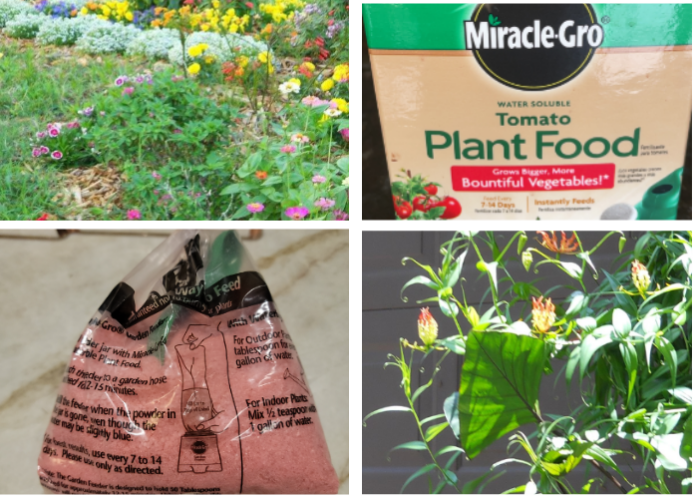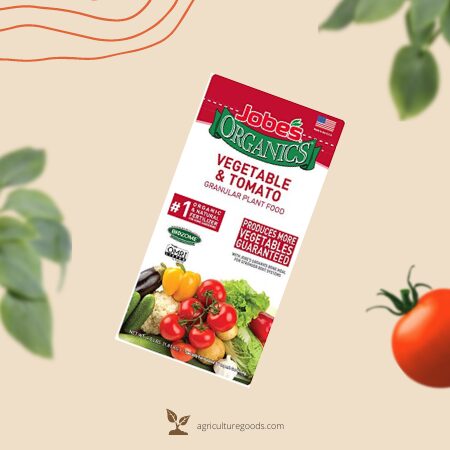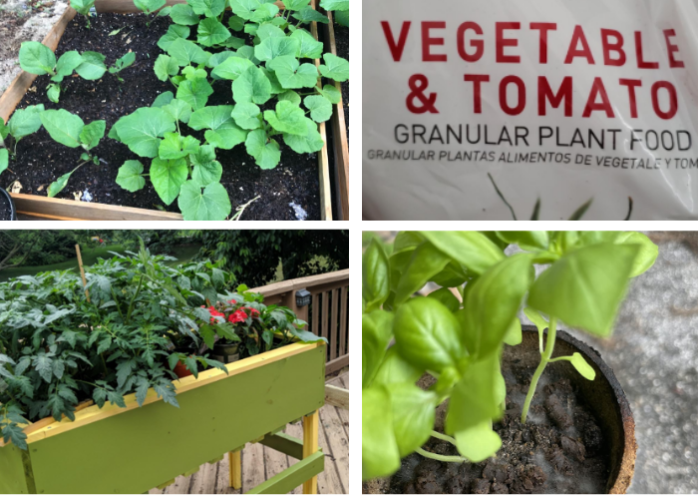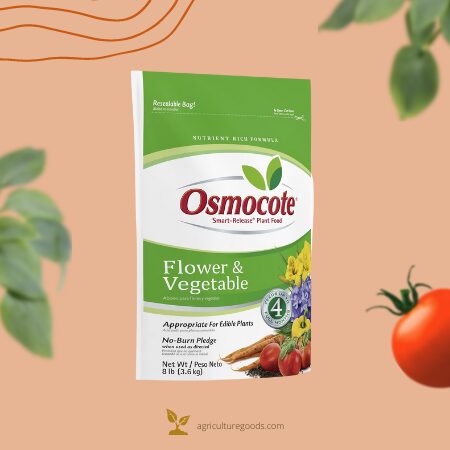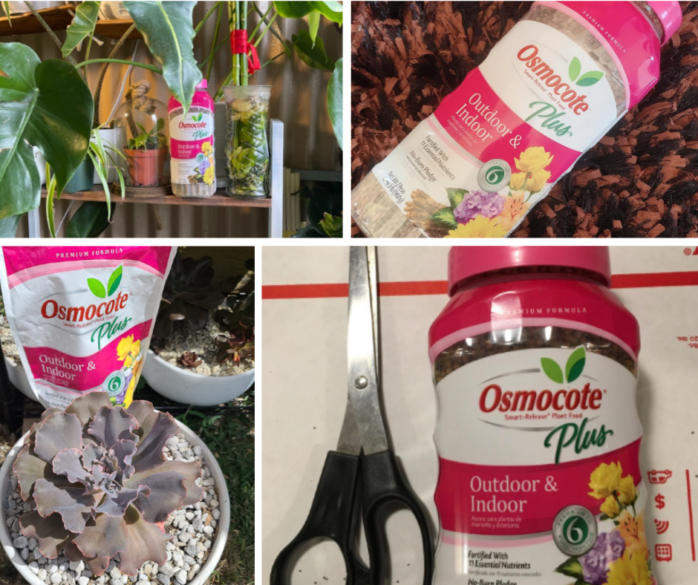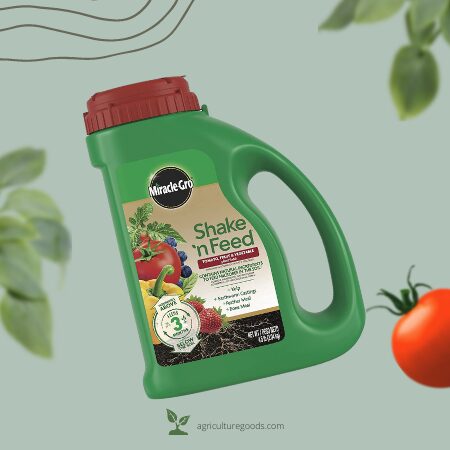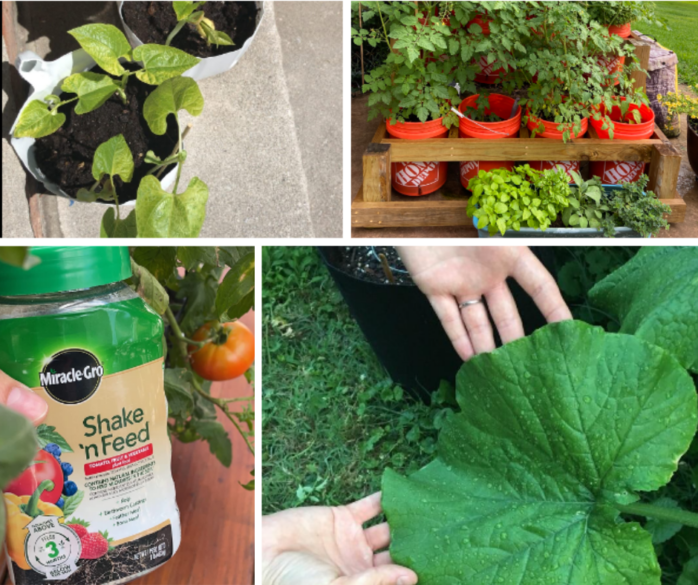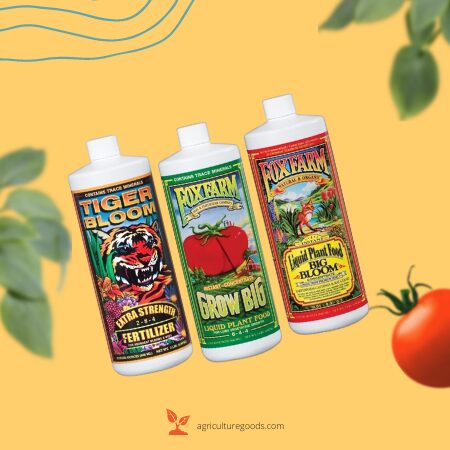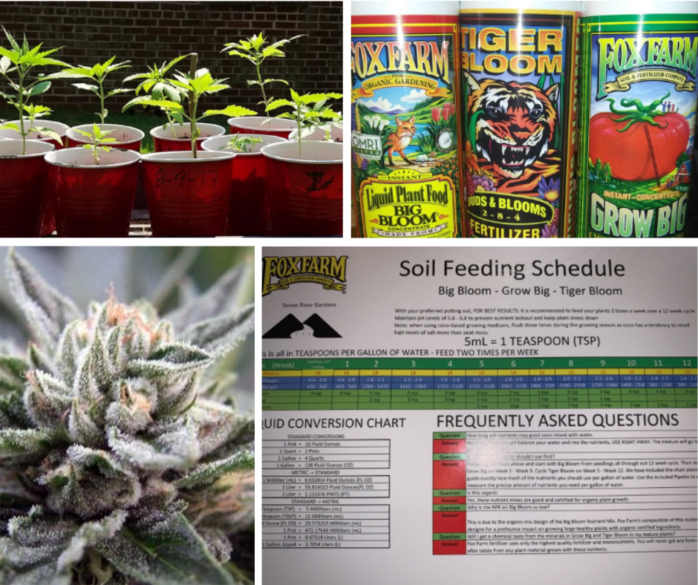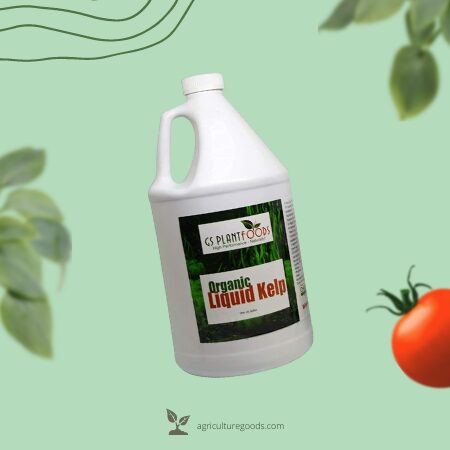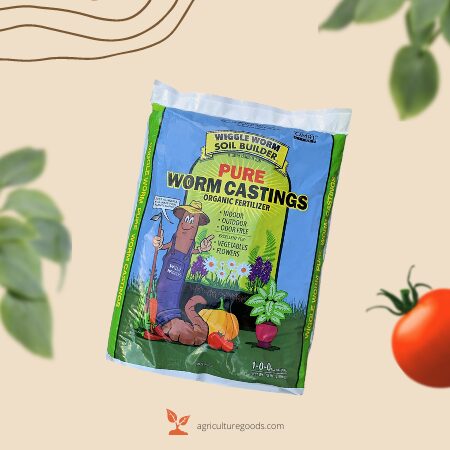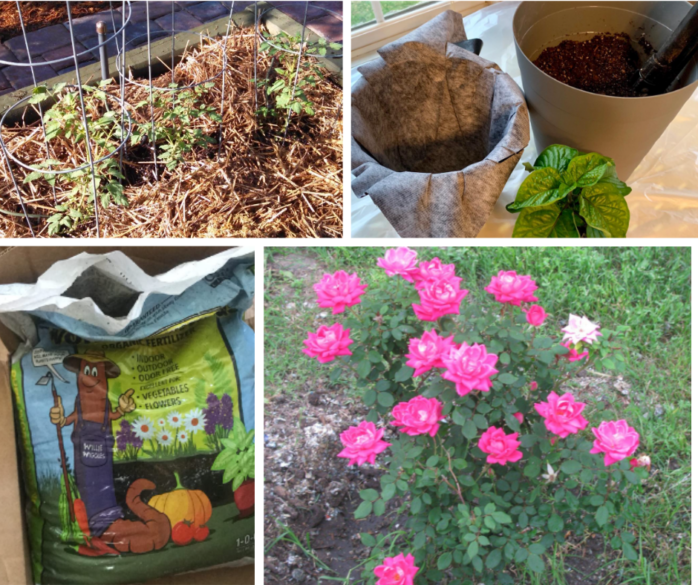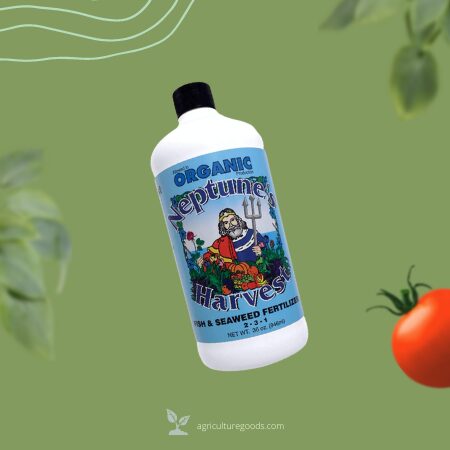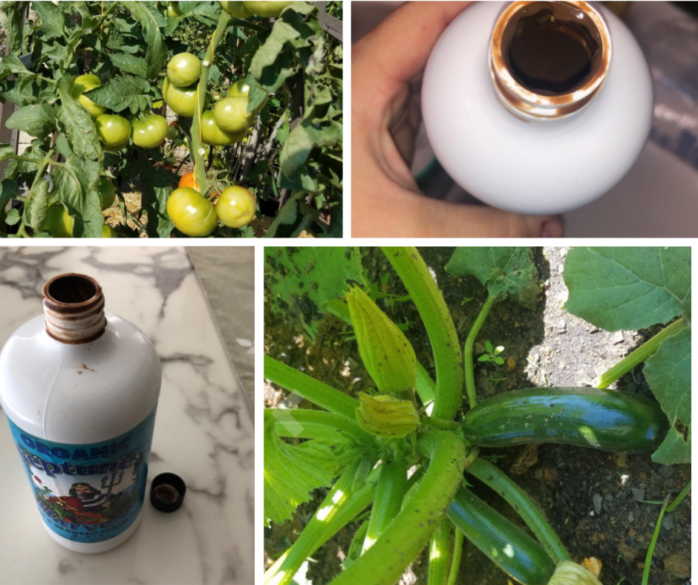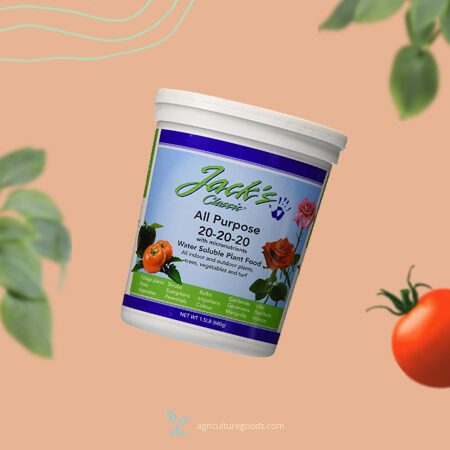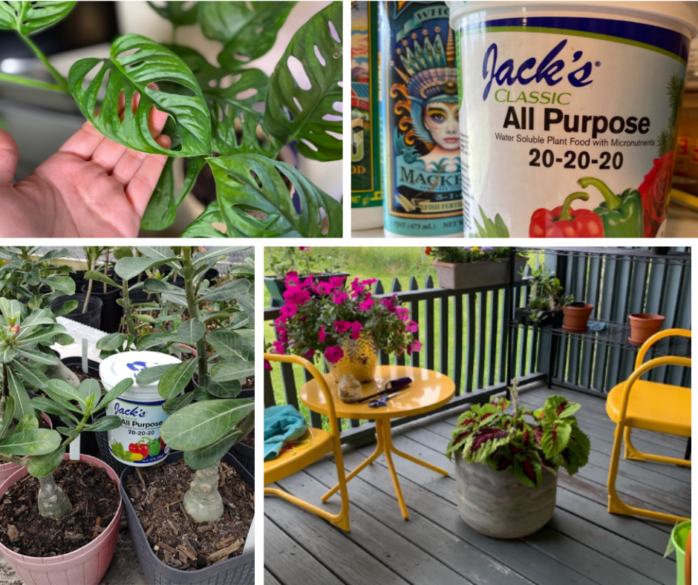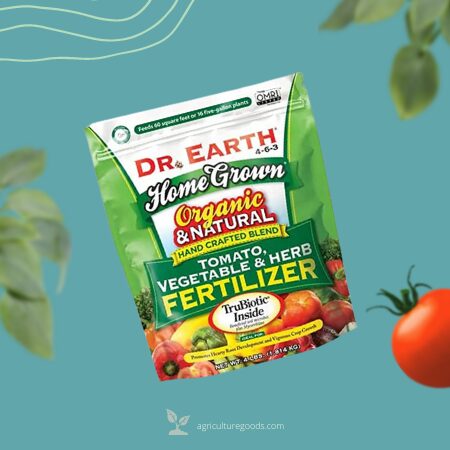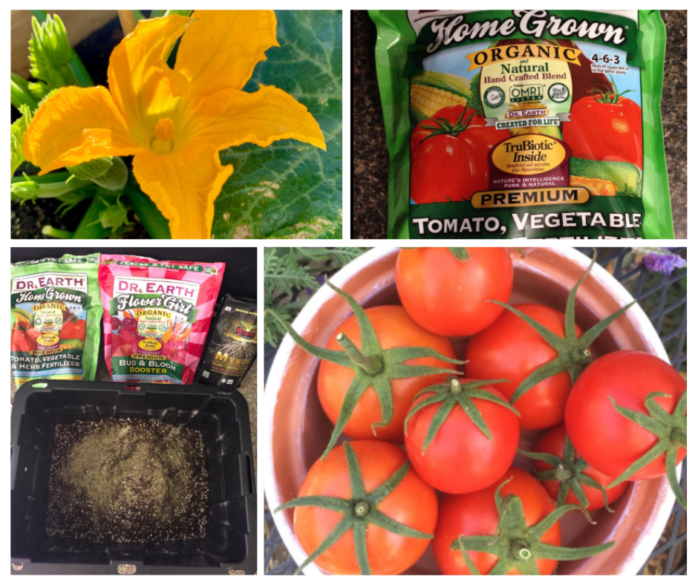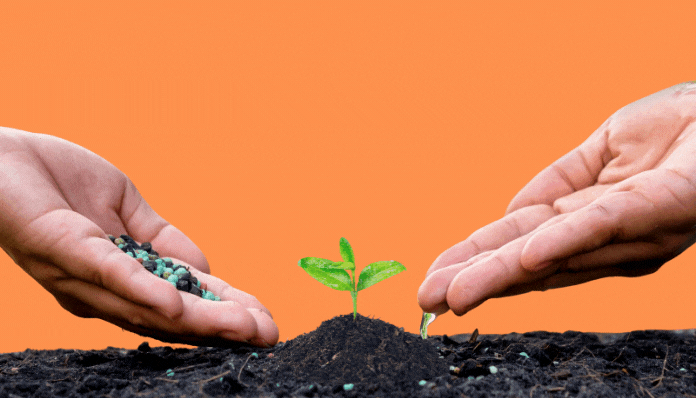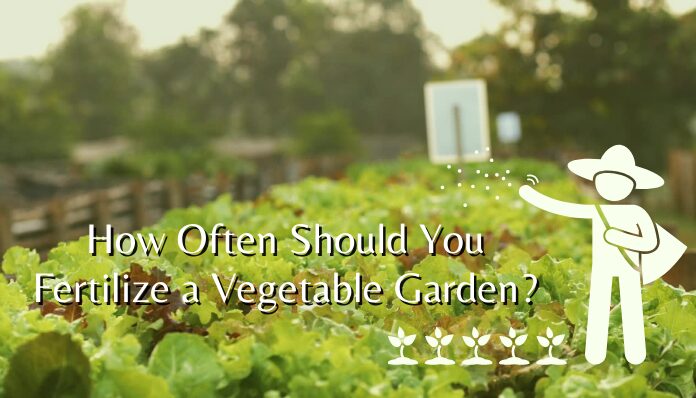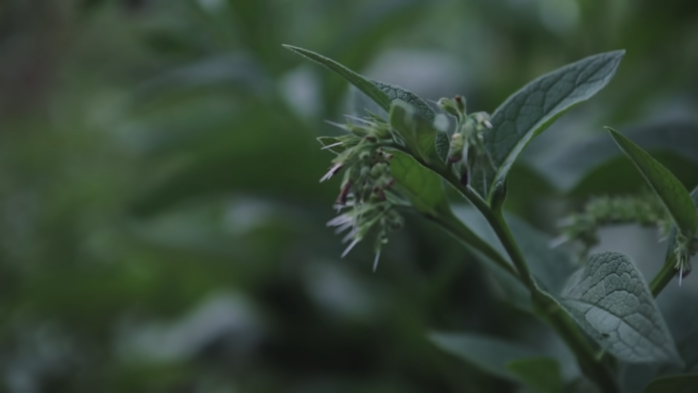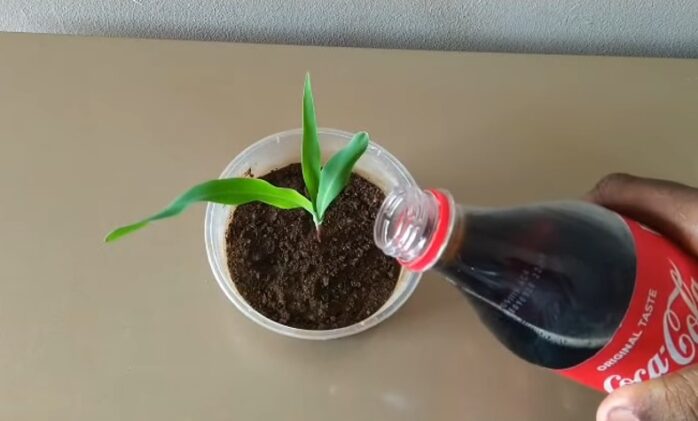If you have a vegetable garden, you’re probably already aware that if you want the largest, strongest harvest, you need the right fertilizer. The thing is, there are so many choices out there; choosing the right one isn’t easy.
We’ve put together this analysis of the best vegetable garden fertilizer to help you find out what to look for and how to make a decision. Plus, we included an analysis of ten of the best available items.
Vegetable Garden Fertilizer Options
The best thing you can do is test your soil before you determine which fertilizer is right for you and you know what sort of fertilizer you need. For other plants, you have to remember the NPK ratio but with a vegetable garden, there are many other aspects to consider.
A lot of other nutrients are needed in vegetable gardens to grow healthy and give you the best and most delicious vegetables. This is why it is so important to use a fertilizer that is specifically intended for vegetable gardens. There are usually two main forms to choose from: organic and synthetic.
Synthetic fertilizers contain ingredients that are man-made. Some contain nutrients that the plant immediately uses. Some are made for gradually releasing nutrients over a longer period of time. Others use them in combination.
Pay attention to the NPK ratio when looking at synthetic fertilizers. This is the sum of potassium, phosphorus, and nitrogen. Some vegetables prefer a 10-10-10 or 20-20-20 balanced ratio but others, prefer leafy greens, which only need nitrogen and others need more potassium.
One thing you should remember is what sort of fertilizer you want. For the most part, liquid fertilizer is short-acting. This is typically applied to the soil or waterline but it is possible to add certain formulas directly to the leaves. Some formulae are powders designed to be dissolved in water and used in the same manner.
Another alternative is fertilizer in granular form. This form is usually intended for extended release. Nutrients are gradually released out of the granules. A single program lasts for four months or more for certain formulae.
If you love to get your hands in the dirt, the custom stickers with your garden name and your own design are for you! The custom garden sticker really add a statement and so much fun to your garden planner and journal.
You could also apply your gardening stickers for gifts from your vegetable garden. The vegetable are fresh, the theme is perfect, the colors vibrant, and CustomSticker.com has good stick to them. Let your vegetables grown with love!
10 Best Vegetable Garden Fertilizer Reviews
1. Miracle-Gro Water Soluble Tomato Plant Food
Miracle-Gro is one of the most well-known gardening brands so it’s no wonder their tomato plant food is one of your garden’s best options. Because it says “tomato” on the box, don’t worry, all vegetables can be used with it.
What’s very cool about this fertilizer is that you can use it on plants and seedlings in pots or in your backyard garden. This has an 18-18-21 NPK, so the 1.5-pound kit will last for some time – you only need one scoopful for each order.
This formula isn’t going to burn your plants when used as directed. It starts working immediately and gives you vegetables bigger and better. Feed your garden once to two weeks daily for better performance. For a watering bowl or a Miracle-Gro Garden Feeder, you should submit.
2. Jobe’s Organics 9026 Fertilizer, 4 lb
If you prefer a granular fertilizer that is also organic, take a look from Jobe’s Organics at this drug. This quick-acting solution is perfect for all vegetables and has been licensed by the USDA for organic gardening. This means no synthetic chemicals and naturally occurring ingredients plus it is biodegradable, organic, and renewable.
This fertilizer involves Jobe Biozome, a special mixture of micro-organisms such as healthy bacteria, fungi, and archaea. That breaks down the material so that it can be used more easily by plants.
Not only can you see results quickly but it also strengthens the soil that helps your plants survive drought, insects, and disease during the season.
You can have this fertilizer in a 1.5, 4, or 16-pound bag so you can order exactly what your garden needs. Comprehensive instructions for container gardening, seeds, seedlings, and existing plants are available on the box.
3. Osmocote 277960 Smart-Release Plant Food Flower & Vegetable
Osmocote is a must-have for anyone who prefers a slow-release fertilizer. Not only is it formulated for vegetables and perennials but it takes up to four full months for one application. Plus, since it comes in an eight-pound package, adequate to get you through the growing season.
This plant food encourages both top-growth and good root production for healthy, robust plants. How’s it working out? The granules are covered with semi-permeable resin. Water penetrates the inside of the surface and dissolves the nutrients.
Nutrients are released into the soil when the temperature increases. So, it gets more of what it needs to flourish when the warmer growing season hits and your garden gets really productive. It’s easy to apply, just sprinkle the fertilizer onto the soil, mix it with the top few inches and water daily. Reapply as needed, every four months.
4. Miracle-Gro Shake ‘N Feed Tomato, Fruit & Vegetable Plant Food
Here’s another fantastic Miracle-Gro product that has been created for your vegetable garden. It’s perfect for the berries and tomatoes, too. One application takes three months to complete. You can also get it in a container worth one or 4.5 pounds, so you can get what you need to cover your garden.
This fertilizer uses natural ingredients to feed the microbes in the soil which, by supporting strong roots and water quality, helps ensure long-term health. Micronutrients and calcium are also available which encourage your plants to grow more crops.
It fertilizer can be used for in-floor plants or containers. Simply remove the lock, insert the applicator cap, and open the sputum to apply. Add the dry granules to the surface, remove stems, and then mix in one to three inches in the field. Air and ready to go.
5. Fox Farm FX14049 Liquid Nutrient Trio Soil Formula
A great alternative for a vegetable garden is this trio from Fox Farm. The best thing about this collection is that it lets you tailor the fertilized that you use to the needs of your plants at the time. This is not a one-size-fits fertilizer for everything. This is intended to span the whole development cycle.
You get a bottle of Big Bloom liquid fertilizer which provides nutrients that can be used immediately by your plants. It includes earthworm castings and bat guano plus organic gardening is registered as free. Use it for all the plants it fruit.
Grow Big fosters lush growth, making your plants larger, stronger, and growing more fruits and buds. And its low pH makes it more available to micronutrients.
Last but not least, you’ll get a Tiger Bloom bottle that encourages robust growth and is safe to use in both soil and hydroponic applications. Remove it before harvest, at the first sign of flowering.
6. Liquid Kelp Extract Seaweed 32 Ounce Fertilizer Concentrate
One great organic liquid alternative is this GS Plant Food kelp extract. It’s one of the highest quality seaweed products available, extracted from Norway harvested Ascophyllum Nodosum. This is a natural plant food which has many advantages for your garden.
This fertilizer not only increases the root growth and seeding but also helps to increase the size of blooms and fruits. The plants should be better suited to cope with severe weather conditions and other difficult ones. They will be greener, healthier, and more able to cope with the disease and insect attacks.
For even better results, you can use this product alone, or combine it with high-quality fish fertilizer. While being perfect for gardens, it can also be used for seedlings and houseplants. Best of all, it won’t hurt your plants because it’s all-natural, even though you overuse it, making it a very healthy option.
7. Worm Castings Organic Fertilizer, Wiggle Worm Soil Builder
Many fertilizers use earthworm castings as an ingredient but Wiggle Work Soil Builder takes the castings to the next stage. It is made of pure earthworm castings and works well from your vegetable garden to your potted houseplants with just about any type of plant.
Earthworm castings are completely natural and healthy to provide your plants with immediate nutrients and also enrich the soil to feed your plants gradually over a longer period of time. It’s non-toxic, odor-free, all-natural and if you use too much it won’t burn your plants.
This fertilizer does a lot for the soil to help avoid root rot by enhancing aeration and encouraging drainage. For any application, you just need to use a little bit so this 15-pound bag will give you a lot of coverage. This is incredibly cost-effective and works very well.
8. Neptune’s Harvest Organic Hydrolized Fish & Seaweed Fertilizer
The Harvest liquid fertilizer from Neptune is one of the most flexible fertilizers out there, and a perfect alternative for your garden. It’s easy to blend and can be added to the drip line with a watering tube, sprayer, or.
This plant, organic fertilizer is extracted from seafood and fish. The brand suggests using one ounce of fertilizer for each gallon of water for vegetables, and applying it every two weeks or so. The big 36-ounce bottle will last for some time, depending on how much land you cover.
Saturating the top and bottom of the leaves can either saturate the soil or spray directly onto the leaves for foliar feeding. Do it either early in the morning or late in the day if you prefer foliar feed so the leaves are not too wet in the strong sunlight.
9. J R Peters 52024 Jacks Classic No.1.5 20-20-20 All Purpose Fertilizer
If you want an all-purpose fertilizer, check this one from Classic Jack’s. It feeds via the roots and leaves and has been shown to be effective for decades in vegetable gardens. Besides, it can also be used in your indoor plants.
The balanced 20-20-20 NPK ratio encourages the rapid expansion of the leaves and good, dark green leaves. Using one table liter per gallon of water for outdoor applications. Includes a convenient measuring spoon and detailed instructions.
This product comes in a wide 1.5-gallon resealable tub which makes it very easy to store. It’s also available in multipacks of two or four if you want to buy in bulk so you can cover more ground and save a little bit of time.
Since 1947 JR Peters has been in the business and has a history of producing great products. If you are looking for a fine, all-purpose fertilizer you can trust this one.
10. Dr. Earth Organic 5 Tomato, Vegetable & Herb Fertilizer Poly Bag
This Dr. Earth vegetable garden fertilizer is made from 100 percent organic and natural ingredients. This has no GMOs, sewage sludge or manure for chicken, and is classified as OMRI for organic farming.
The box includes specific instructions for the application of various plants, including peppers, tomatoes, cucumbers, eggplant, beans, and lettuce.
The strength of this commodity is its versatility. It is designed to feed both container and vegetable gardens. This can also be used when planting or transplanting seedlings and can be used for both summer and winter crops. Your plants are going to be better, and the vegetables produce even more delicious.
The recipe includes a variety of naturally occurring food-grade ingredients and is manufactured in the USA sustainably. A four-pound bag goes a long way but if you prefer, you can buy in bulk. There are packs of two, three, and four packs.
When to Apply Fertilizer to Vegetable Garden?
Whether you just start a garden or are planning to replant, the best time to fertilize is in the spring. If you’ve done a soil test and know you need to make a lot of changes before planting is safe, start early so you can get the fertilizer deep down into the soil before you start.
If your soil is all right, fertilizing in the spring is always a smart idea so you don’t have to worry about having any extra time. It’s a good idea to use a general, all-purpose fertilizer before seeding. You might even want to try one which is a bit higher in nitrogen.
Typically, when your plants start growing faster you need to add more fertilizer. Around this time the plants are essentially ramping up production and using more of the nutrients available. It hinges on the plant when you need to think about this.
Some plants grow fast pretty early in the season, such as lettuce. In the other hand, in the middle of the summer, plants such as cabbage, corn, tomatoes, and potatoes grow the fastest. At this level, they would need an extra boost. For more help with fertilizers for your vegetables, eg. for tomatoes you can find more on BackyardStyle.
If you are using an extended-release fertilizer, it may suffice to last the entire season. Follow the instructions for the kit, and keep an eye on the plants to ensure that they are stable. The only way to be sure that your soil is good is to check it over the summer and make changes as needed.
What time of day to apply fertilizer depends on that too. You don’t have to think about it with an extended-release fertilizer. The fertilizer is already in the soil, just make sure that you water it properly and that you are good to go.
When you add the fertilizer directly to the leaves, do so at any time early in the morning or late in the day. When the sunlight is bright and strong, applying this form of fertilizer at the height of the day’s heat will burn the leaves and cause serious damage to the plant.
All that said, it’s best to follow the instructions provided with your fertilizer because each is a little different.
How Often Should You Fertilize a Vegetable Garden?
If you’re planning to plant different seasonal items, you’ll have to do some research year-round. After harvesting all at the end of the season, and before the field is too hard to till, apply a balanced slow-release fertilizer to the soil.
Work it gently to the top few inches and then cover the ground. For that, a thick mulch layer works well. It provides on-surface food for worms that keep the soil aerated. The slow-release fertilizer replenishes the nutrients used up by the plant in the summer through the winter.
As we have said, it’s time for the start of the growing season to add some balanced fertilizer in the spring. When you fertilized in the winter, this might not be important, but again, the only way to say for sure is to check the soil.
In summer again fertilize. If you do this it depends on what kind of vegetables you produce. If you are not planting until the summer, add a balanced fertilizer with a gradual release. Check the soil as required to ensure that you are getting it right.
When the summer is particularly hot or dry, your garden requires a little extra care. Soft, dry soil makes it more difficult for the plants to use the nutrients available, so you can need to add some magnesium.
Fall crops don’t need as much fertilization as they have a shorter growing season. You can add fertilizer for fast release every few weeks, as needed. And if you get a frost, stop fertilizing. Because of the cold weather, the plants would be tired, and too much fertilizer will kill them.
You should always follow the instructions included with your chosen fertilizer. Just once a season should slow-release fertilizers be applied whereas short-acting should be applied every few weeks. Every brand is a little different so make sure you use yours the right way.
FAQs
1. What fertilizer do vegetables need?
Vegetables need fertilizer that is specifically made for them. A balanced fertilizer will have the right amount of nitrogen, potassium, and other nutrients that are needed for vegetable growth. Look for a fertilizer that has an NPK ratio of 12-12-12.
2. Which fertilizer makes vegetables grow faster?
There is no one fertilizer that will make vegetables grow faster. Different vegetables need different types of nutrients, so you will need to experiment to find the right fertilizer for your garden. The best way to find out what nutrients your vegetables need is to start with a soil test.
3. What is the best natural fertilizer for vegetable gardens?
Some people prefer to use compost as a natural fertilizer for vegetable gardens, while others might prefer to use a commercial fertilizer. There are many different types of fertilizers on the market, so it is important to choose one that is specifically designed for vegetable gardens.
4. Is Coca Cola good for plants?
Not really. Coca Cola contains phosphoric acid, and while it is not harmful to plants in small doses, excessively high levels of phosphoric acid can stunt plant growth. Additionally, Coca Cola contains caffeine, which can block the absorption of important nutrients by your plants.
5. Is urine good fertilizer for plants?
Some people say that urine can be used as fertilizer for plants, but it is not recommended to do so. Urine is full of salts, which can damage the plant’s cells and cause them to die. If you really want to use urine as fertilizer for your garden, make sure to dilute it first.
6. What liquids help plants grow best?
There are three main liquids that help plants grow: water, fertilizer, and earthworms. By mixing these liquids together in the right proportions, you can provide your plants with exactly what they need to grow.
Conclusion
Both plants need fertilizer but exceptional are vegetable gardens. Rapid growth draws something from the soil. You need to use the best vegetable garden fertilizer to grow healthy plants that produce an abundance of large, delicious veggies.
There are a variety of issues to remember. Do you prefer organic or synthetic? Short-acting or protracted release? Liquefied or granulated? There is plenty to choose from different products. Fortunately, the items we reviewed cover a wide variety of choices and are highly recommended to all.
Lastly, seedlings are the get-go stage of any gardening, where you have to be truly patient and caring. And you can’t do it without the best fertilizer for seedlings. Check out GardenerWiki to find the suitable one.
Take a look at these products from the same price range, that are available right now on Amazon:

